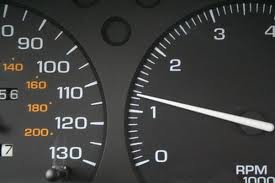Categories

Unfortunately there is a lot of confusion about certain driving and vehicle issues. Let’s try to clear the air on a few driving myths.
Driving Myth #1:
1) Increase Tire Pressure. To get the most out of a full tank of gas, you should pump up those tires.
The Reality: Yes, it’s true that driving on under-inflated tires can cost you up to 3.75% in fuel economy. However, over-inflating tires can actually be dangerous. Have you ever seen a blow-out on the freeway? Drivers definitely don’t want that to happen. Tires that are overinflated have trouble getting a grip on the road, which can easily cause an accident.
Proper tire inflation is important for the safety and longevity of your tires. Although properly inflated tires won’t provide a huge amount of fuel savings, every little bit counts.
Driving Myth #2:
2) Keep the Engine Running. Turning the car on and off is bad for the engine and uses up a lot of gas.
The Reality:
No! This is not true. Today’s modern fuel-injected vehicles are efficient and don’t waste gas during start-ups anymore. Actually, many states have passed anti-idling laws for commercial vehicles over the past few years in an effort to reduce air pollution.
For example, California idling laws say that heavy-duty diesel engines made in or after 2008 are required to have a system that automatically turns the engine off within five minutes of idling. For school buses in California, idling is limited to a maximum of five minutes for locations further than 100 feet from schools, including bus stops and school-trip destinations.
It is very important to reduce idling, in ways like tuning your vehicle off whenever you are not actually driving. For example, if you pull up to a curb, or are stuck waiting for a train, don’t sit with the engine running. In fact, idling can cost you up to half a gallon of gas an hour, so turn off the engine if you’re not going anywhere.
For companies with a fleet of vehicles, reducing vehicle idling can save a ton of money. Did you know that each year fleet vehicles burn 8.9 billion gallons of fuel annually due to unnecessary idling and speeding? This costs companies an estimated $2400 per vehicle annually. A GPS fleet management system can identify which vehicles are wasting time and money on excessive idling and speeding.
